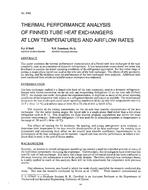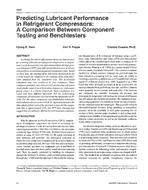A research project has been conducted to evaluate the effectiveness of in-place emergency ventilation strategies to control fire and smoke spread in a road tunnel. Some of these strategies date back to the design of the tunnel (1964). Following a recent fire, the operating instructions were revised. A scientific-based validation of these operation instructions is the main objective of the current study. The research includes both numerical and experimental studies. The numerical study uses the fire dynamic simulator model to investigate smoke ventilation in tunnels. The experimental study is used to provide the necessary initial and boundary conditions for the computational fluid dynamics model.
The results of the numerical analyses indicated that the phenomenon of “backlayering” did not occur in all simulated cases and that the in-place ventilation strategies are efficient in clearing hot smoke and fire products from the tunnel.
The study also provides recommendations in order to further improve the performance of these strategies and increase the level of safety of means of evacuation of the tunnel. The recommendations suggested to change the configuration of the side vent dampers according to the fire location and the scenario used and to introduce a duct system that separates the evacuation paths from the ventilation system operations in the service galleries. These recommendations have inspired the tunnel authorities to conduct a series of feasibility studies to reengineer the ventilation system and refit the service galleries.
Units: SI
Citation: ASHRAE Transactions, vol. 114, pt. 2, Salt Lake City 2008
Product Details
- Published:
- 2008
- Number of Pages:
- 10
- File Size:
- 1 file , 4.7 MB
- Product Code(s):
- D-SL-08-029


